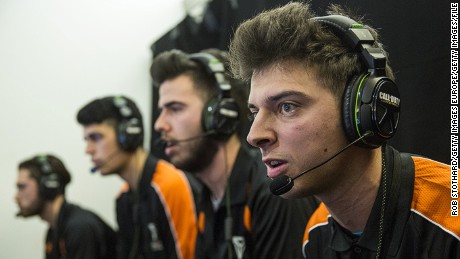
(CNN)Video games’ bad reputation may be unfair. Teens who were regular gamers scored higher than average in math, reading and science on an international exam, a new study found.
On the other hand, teens who daily scanned their Facebook feeds or chatted with friends more than others tended to score 4% worse than average in math.
Based on these results, a little “research to uncover the different ways by which children learn from online games” might improve teaching methods, said Alberto Posso, author of the study and an associate professor at the Royal Melbourne Institute of Technology’s School of Economics, Finance and Marketing.
Meanwhile, for Posso, finding answers about the effects of video games was necessary for one very important reason: While Australian adults use the internet about as much as American adults, Australian teens spend significantly more time online than teens from either the United States or Europe, his study says. Whatever its effects, online time could be hurting — or helping — Australian teens more than other teens.
Answers are never easy; Posso’s conclusions were mixed.
See the latest news and share your comments with CNN Health on Facebook and Twitter.
“Should we advocate that parents stop their children accessing Facebook and online chatting and force them to play video games?” Posso asked.
Unwilling to go that far, he concluded that games “appear to equip students to apply and sharpen knowledge learned in school by requiring them to solve a series of puzzles before moving to the next game level.” By encouraging players to strive, video games influence teens in a positive way.
Read more: http://www.cnn.com/2016/08/08/health/video-games-teens/index.html












